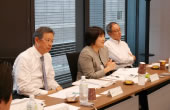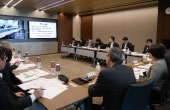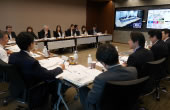- *1SMBC Friend Securities has formed a merger with SMBC Nikko Securities in January 2018.
- *2The Minato Bank and Kansai Urban Banking Corporation are excluded from SMFG group since April 2018.
Dialogue with Stakeholders
FY2016 Dialog: Verification of Action Plan for Tackling Priority Issues (Materiality)
(October 19, 2016)
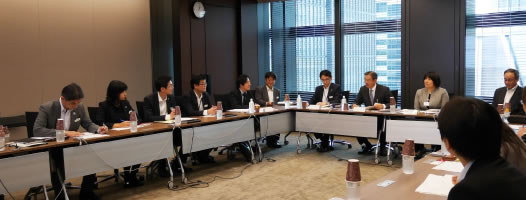
In October 2016, SMBC organized a dialog session with experts to verify the suitability of our action plan for tackling priority issues (materiality) and reflect the conclusions in future action. Based on the GRI Guidelines (G4), in March 2014, SMFG determined three priority issues (Environment, Next Generation, and Community), and articulated an action plan for addressing each of them.
Around three years have passed since the determination of the priority issues, and during that time the international situation has changed considerably. Developments include the establishment of Sustainable Development Goals (SDGs), which form the core of the 2030 Agenda for Sustainable Development adopted by the U.N. in September 2015, and the adoption of the Paris Agreement at the 21st U.N. Climate Change Conference (COP21). In light of these developments, we therefore decided to seek opinions on how the role SMFG should play has changed and how we should respond to such societal demands.
*Participant’s name of company and titles are as of the time of the event.
Click here for more information on the process through which SMFG determined the priority issues (materiality):
SMBC Group’s activities for the future
Experts who took part in the dialog

Takejiro Sueyoshi
Special Advisor
United Nations Environment
Programme Finance
Initiative (UNEP FI)

Makiko Akabane
Japan Representative
CSR Asia Tokyo Office

Takejiro Sueyoshi
Special Advisor
United Nations Environment
Programme Finance
Initiative (UNEP FI)

Makiko Akabane
Japan Representative
CSR Asia Tokyo Office
SMFG participating companies
- Sumitomo Mitsui Financial Group
- Sumitomo Mitsui Banking Corporation
- Sumitomo Mitsui Finance and Leasing
- SMBC Nikko
- SMBC Friend Securities*1
- Mitsui Sumitomo Card
- Cedyna
- SMBC Consumer Finance
- The Japan Research Institute
- The Minato Bank*2
- Kansai Urban Banking Corporation*2
- Sumitomo Mitsui Financial Group
- Sumitomo Mitsui Banking Corporation
- Sumitomo Mitsui Finance and Leasing
- SMBC Nikko
- SMBC Friend Securities*1
- Mitsui Sumitomo Card
- Cedyna
- SMBC Consumer Finance
- The Japan Research Institute
- The Minato Bank*2
- Kansai Urban Banking Corporation*2
The role SMFG should play in achieving the SDGs and implementing the Paris Agreement
SMFG declared a policy of being “Asia-centric” in the medium-term plan we have been implementing since FY2014. SMFG recognizes that if we are to develop our business globally, particularly in the fast-growing Asia region, and demonstrate leadership, we will need to be conscious of global social issues, including local ones. Regarding the SDGs and the Paris Agreement, which have been subject to a lot of attention recently, we asked the experts for their opinions on what sort of role SMFG ought to play.
Main opinions
Mr. Sueyoshi:
- You do not have to work to achieve all 17 of the Sustainable Development Goals (SDGs) recently adopted by the U.N. Instead, it’s important to choose those SDGs that are most important from the perspective of your business, the one that will cause you problems if you ignore it. Because SMFG companies operate in different areas, I think a realistic approach would be for each of them to select their own SDGs.
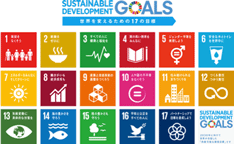
17 Sustainable Development Goals
- It is important to consider whether there’s a gap between the perspective of Japanese people and the perspective of people overseas. Global initiatives like the SDGs are opportunities to recognize global problems, to become aware of them. And if you’re conducting business overseas, it’s particularly vital to explore these sorts of differences in perspectives before taking action.
- With the adoption of the “zero CO2 emissions policy in the Paris Agreement, the direction the world is moving in to tackle global warming has changed, and it’s important to recognize that a completely different set of values will be demanded by society, in business, and by the economy.
- ”Financing Change,” namely, supporting change through finance, is essential, but to achieve that, it’s also necessary to “Change Financing.” In other words, financial institutions need to change, and SMFG should regard itself as also requiring a transformation.
Ms. Akabane:
- CSR initiatives are expanding also here in Asia, but a lot of companies are yet to implement them through their core operations. Companies outside Japan in other parts of Asia have a strong desire to take a leadership role in the world and in their respective sectors, so I hope that SMFG will also take action through its core operations as an Asian leader.
- The SDGs should be discussed in the context of economic activities, which constitutes the essence of finance (SDG 8: Decent work and economic growth). It would also be advisable to take into account both social and environmental factors in the screening process of investments and loans and to incorporate measures to improve financial inclusion and literacy so as to solve economic inequality. There are 17 SDGs, so I encourage you to choose ones that best reflect your future vision and the regions where you develop your operations. In cities experiencing construction boom, I think you are in a position to promote “green buildings” (SDG 11: Sustainable cities and communities). I think you can also demonstrate leadership in other areas such as protecting biodiversity (SDG 14: Life below water, SDG 15: Life on land).
- Human rights is One of the key social issues on the table at the moment. If you fail to take due action to protect human rights, the business risks are high. If you want to become a global leader, you need to be more sensitive to human rights issues.
Future issues for Japan
Japan is facing serious issues even by international standards. These include the low birthrate and aging population, gender inequality, and relative poverty. Although progress is being seen in some areas, such as the promotion of diversity, the situation in other areas is becoming increasingly severe. We therefore asked the experts for their opinions on how we should tackle the issues facing Japan.
Main opinions
Ms. Akabane:
- I hope that support will be provided for working mothers to reduce the time they have to spend on housework, which is most commonly shouldered by women. Companies implement initiatives to reform the ways people work which include improving employee productivity and reducing overtime. If these initiatives could also work towards shortening housework time spent by women, I think this can lead to achieve a work-life balance of society as a whole.
- With regard to diversity and inclusion, I’d expect Japanese companies to pay closer attention to their overseas sites. It has been pointed out that at offices and branches outside Japan in Asia, salaries and benefits differentiate on the basis whether employees are Japanese or not, and that there is deep-rooted discrimination and dividedness. This can also make locally-hired employees who are highly competent quit their jobs, so I think such practices should be changed in order to enhance the competitiveness of companies.
Mr. Sueyoshi:
- From the perspective of human resource utilization, I think the “multi-career path” approach is going to become increasingly important in the future. Although it’s important to develop one’s career in a single location, employees need to gain experience of a single job over several years before taking on a different job. Such a change is also required. So companies need to think about their approach to employment, and they should consider such ways of working.
- In the area of the environment, I think biodiversity is going to become extremely important. The preservation of marine resources, for example, is an issue that impacts not only on business but also on our daily lives, so we shouldn’t just focus on reducing CO2 emissions. We need to adopt a perspective of asking ourselves how we can protect the earth’s environment globally and holistically.
Verification of the action plan for tackling priority issues
We also examined the action plan for tackling priority issues based on the discussion until now and the policies, initiatives, etc. of each group company.
Main opinions
Mr. Sueyoshi:
- ”Materiality” is essentially the foundation for all business, and has a serious impact, affecting share prices, for example. To conduct business correctly, ESGs have become material. That is the current trend.
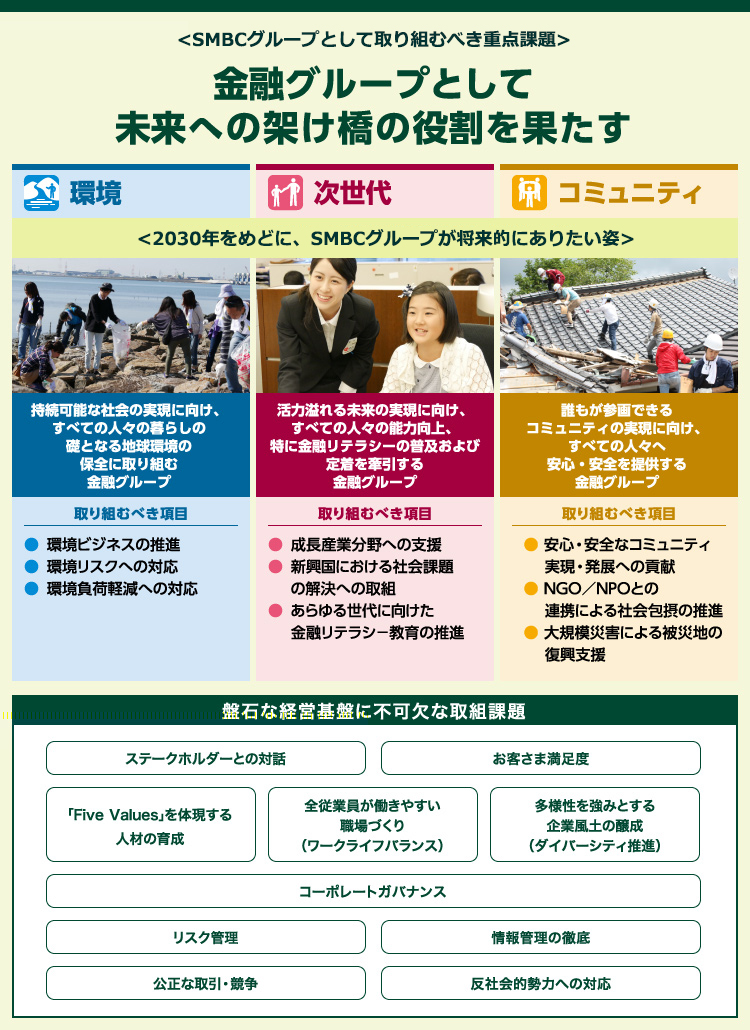
SMFG’s priority issues (materiality)
- SMFG is at the stage where it should consider, from that sort of perspective, what the essential elements for its future development are and how they can be incorporated into its main business. This is a difficult task, but if you get to grips with it quickly, you’ll be able to differentiate yourself significantly.
- One of the roles of finance is to serve as an intermediary for the flow of money within society. You have declared a vision for “where you want to be ten years from now” for each of the three themes of “Environment,” “Next Generation,” and Community,” but the duty of financial institutions is to allocate society’s money in such a way as to realize their vision for society ten years from now. I want you to accept this sustainability wholeheartedly and decide what you should do.
- As adoption of the multi-career path approach spreads, it will be important to make yourself more attractive as a workplace. This will also serve to stem the outflow of human resources. I think the way a company influences society through its main business and social contribution efforts will correlate with its attractiveness and value as a workplace.
- I think that approaching social contribution from the perspective of creating value for employees working at SMFG will have a more positive impact internally and externally.
- Finance is needed everywhere. Finance is essential to implement measures to help the most vulnerable people in society, to transform the structure of industry, which will require huge sums of money, and to create of new businesses, and so on. I strongly feel that SMBC is going to pursue its business in the most efficient and effective way possible, and I really hope that it will become the leading financial group in Japan and the rest of Asia.
Ms. Akabane:
- Let me talk about each of the priority issues in the context of the current situation in Asia. First, for “Environment,” I think you could transmit your investment- and loan- screening knowhow to local financial institutions in emerging countries in accordance with the Equator Principles. As for “Community,” you could advocate for financial inclusion. Underdeveloped fields such as microfinance obviously pose high risks, but I’d say it is worth exploring. But I must say the idea that borrowed money should be used to invest in the future, in education and production equipment, for example, is still quite new to many regions, so it’s necessary to educate them on financial literacy, which you can also address through the “Next Generation” priority area.
- Furthermore, while I think each of SMFG’s initiatives is good, in Asia people are more focused on “value creation,” namely, what sort of value can be created by implementing such initiatives. As you look ahead, I’d advise you to also incorporate this perspective into your initiatives.
In response
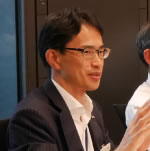
Today we’ve been told that SMFG’s role as a global financial institution is to take action based on a reaffirmation of the “duties and essence of financial institutions,” “efforts through one’s main business,” and “a global perspective.” We’ve also heard that to become “Asia-centric,” one of the elements of SMFG’s vision for where we want to be ten years from now, we need to recognize key elements such as “global leadership,” “value creation,” and “attractiveness as a workplace.”
In the environmental field in particular, we reaffirmed the need to think imaginatively about what will happen as a result of the requirement, as set forth in the Paris Agreement, for society, business, and the economy to achieve “zero emissions,” which constitutes a completely new sense of values, as well as the need to seize business opportunities and mitigate risks.
We also learned that during a phase like this, “Financing Change,” namely supporting change through finance, is necessary, but that to end it is also essential to “Change Financing.” We at SMFG intend to take into account the opinions and expectations we have heard today to revamp our action plan for tackling our CSR priority issues and take action as in an integrated fashion as a corporate group.
Seiji Yamagishi
General Manager, Corporate Planning Dept.
Sumitomo Mitsui Financial Group

